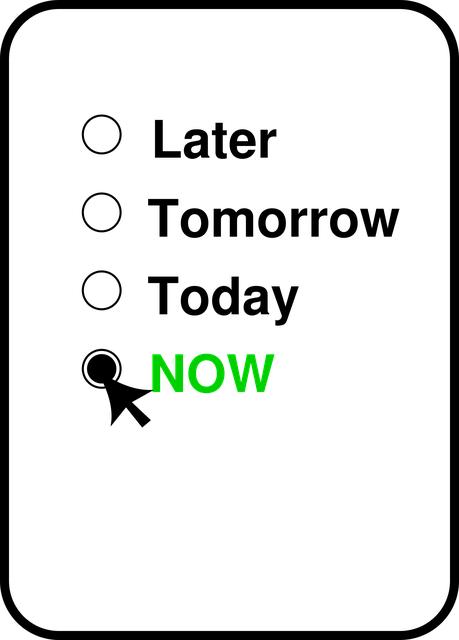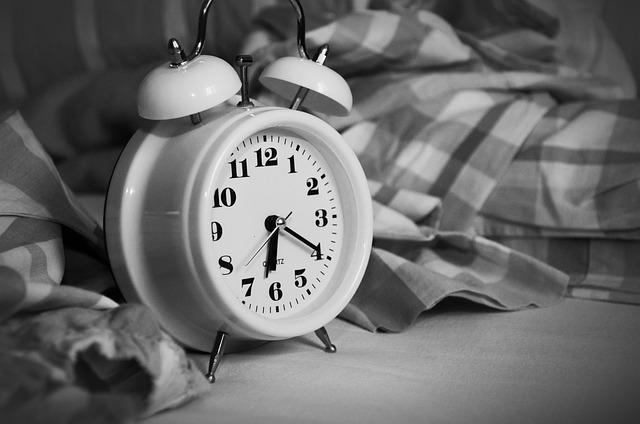ADHD Child Waking Up Early: Managing Sleep Challenges!

Are you struggling with your child’s early wake-up calls, only to find out they have been diagnosed with Attention Deficit Hyperactivity Disorder (ADHD)? We understand the frustration and are here to help! In this article, we will delve into the intricacies of managing sleep challenges for ADHD children, equipping you with invaluable knowledge and practical strategies. With our natural, confident tone, we’ll guide you through this journey, shedding light on how to meet these sleep hurdles head-on and pave the way for happier, more restful mornings. So, let’s get started and uncover the secrets to a well-rested and fulfilling sleep routine!
Contents
- 1. Understanding the Sleep Patterns of ADHD Children: Uncovering the Early Morning Wake-Up Calls
- 2. The Impact of Sleep Deprivation on ADHD Symptoms: Unraveling the Link between Restless Nights and Cognitive Functioning
- 3. Establishing a Consistent Sleep Routine: Building a Solid Foundation for Restful Nights and Peaceful Wake-Ups
- 4. Creating a Calm and Inviting Bedroom Environment: Designing the Ideal Sleep Sanctuary for ADHD Children
- 5. Prioritizing Physical Activity: Harnessing the Power of Exercise to Promote Better Sleep Quality
- 6. Navigating Medication and Sleep Challenges: Balancing ADHD Treatments to Optimize Sleep Patterns
- 7. Implementing Relaxation Techniques: Unwinding the Hyperactive Mind for a Serene Bedtime Routine
- 8. The Role of Nutrition in Sleep Management: Identifying Foods that Support Healthy Sleep Habits in ADHD Children
- 9. Collaborating with Teachers and Schools: Communicating the Importance of Sleep for ADHD Children’s Academic Success
- 10. Seeking Professional Support: When to Involve a Healthcare Provider in Managing Sleep Challenges of ADHD Children
1. Understanding the Sleep Patterns of ADHD Children: Uncovering the Early Morning Wake-Up Calls
ADHD children are known to struggle with sleep patterns, especially when it comes to waking up early in the morning. These early morning wake-up calls can be incredibly challenging for both the child and their parents. However, with the right strategies and management techniques, it is possible to help your ADHD child establish a healthier sleep routine.-
Establish a consistent sleep schedule:
- Set a specific bedtime and wake-up time, and stick to it even on weekends.
- Consistency is key in helping ADHD children regulate their sleep patterns.
-
Create a calm bedtime routine:
- Implement soothing activities before bed, such as reading a book or taking a warm bath.
- Avoid stimulating activities like screen time or energetic play close to bedtime.
-
Create a sleep-friendly environment:
- Keep the bedroom dark, quiet, and comfortable.
- Consider using white noise machines or earplugs to block out any distractions.
-
Stay away from caffeine and sugary foods close to bedtime:
- Stimulants can further disrupt an ADHD child’s ability to fall asleep and stay asleep.
- Consult with a healthcare professional:
- If your child’s sleep challenges persist, it might be helpful to seek guidance from a healthcare professional who specializes in pediatric sleep disorders.
By implementing these strategies and maintaining consistency, you can help your ADHD child manage their sleep challenges and wake up feeling well-rested. Remember, patience and a supportive environment are essential in helping your child establish healthy sleep patterns.

2. The Impact of Sleep Deprivation on ADHD Symptoms: Unraveling the Link between Restless Nights and Cognitive Functioning
Children with ADHD often struggle with sleep difficulties, including waking up early in the morning. It is important for parents and caregivers to understand the impact of sleep deprivation on ADHD symptoms and how it can affect their child’s cognitive functioning.
Sleep deprivation can worsen ADHD symptoms, making it even more challenging for children to focus, stay organized, and control their impulses. Lack of adequate sleep can lead to daytime sleepiness, irritability, and mood swings, which in turn can interfere with the child’s ability to learn and interact with others.
- Reduced attention span: Sleep deprivation can significantly impair a child’s ability to pay attention, leading to difficulties in completing tasks and following instructions.
- Increase in hyperactivity: Inadequate sleep can exacerbate hyperactive behavior in children with ADHD, making it harder for them to sit still, stay focused, and control their impulses.
- Poor academic performance: The impact of sleep deprivation on cognitive functioning can negatively affect academic performance, including memory, problem-solving, and information processing.
It is crucial for parents and caregivers to establish a consistent sleep routine for their child with ADHD in order to optimize their cognitive functioning and overall well-being. This can include setting a regular bedtime, creating a calm and relaxing sleep environment, and implementing bedtime routines such as reading or taking a warm bath.

3. Establishing a Consistent Sleep Routine: Building a Solid Foundation for Restful Nights and Peaceful Wake-Ups
Establishing a consistent sleep routine is crucial for children with ADHD who struggle with waking up early. By building a solid foundation for restful nights and peaceful wake-ups, parents can help manage the sleep challenges that often come with ADHD. Here are some tips to create a routine that works: 1. Set a regular bedtime: Establish a specific time for your child to go to bed every night. Consistency is key, as it helps regulate their internal clock and promotes better sleep quality. 2. Create a calming bedtime routine: Engage in relaxing activities before bed, such as reading a book, taking a warm bath, or listening to soothing music. Avoid stimulating activities, like screen time or intense physical exercise, as they can make it harder for your child to wind down. 3. Make the bedroom sleep-friendly: Ensure the sleep environment is comfortable and conducive to rest. Keep the room cool, dark, and quiet, and consider using blackout curtains, earplugs, or white noise machines to minimize potential disruptions. 4. Limit caffeine and sugar intake: Both caffeine and sugar can interfere with sleep quality. Avoid consuming these substances close to bedtime, as they may contribute to restless nights and early morning awakenings. 5. Consult a healthcare professional: If your child continues to experience persistent sleep challenges despite your efforts, it may be beneficial to speak with a healthcare professional specializing in sleep disorders or ADHD. They can assess the situation and provide additional guidance or recommend suitable interventions. Creating a consistent sleep routine takes time and patience, but it can significantly improve your child’s quality of sleep and overall well-being. Remember to be consistent and adjust the routine as needed to establish healthy sleep habits.
4. Creating a Calm and Inviting Bedroom Environment: Designing the Ideal Sleep Sanctuary for ADHD Children
Creating a calming and inviting bedroom environment is essential in managing sleep challenges for ADHD children. It is important to design a sleep sanctuary that promotes relaxation and minimizes distractions. Here are some tips to help you create the ideal bedroom environment: 1. Remove clutter: A cluttered and messy bedroom can be overwhelming for ADHD children. Clear out unnecessary items and ensure that the room is tidy and organized. This will create a sense of calm and order. 2. Choose soothing colors: Opt for soft and neutral colors for the walls and bedding. Avoid bright and stimulating colors that can make it difficult for your child to relax. Blues, greens, and pastel shades are known to promote relaxation and sleep. 3. Create a cozy space: Invest in comfortable bedding and pillows to make the bedroom inviting. Consider adding a weighted blanket, which can provide a sense of security and comfort for children with ADHD. 4. Minimize distractions: Reduce the presence of electronics in the bedroom, such as TVs and video game consoles. These can disrupt sleep patterns and make it harder for your child to fall asleep. Instead, encourage quiet activities like reading or listening to calming music before bedtime. 5. Use blackout curtains or blinds: Light can be a major distraction for ADHD children, especially when trying to sleep. Install blackout curtains or blinds to block out any external light sources and create a dark and peaceful sleep environment. By implementing these strategies, you can create a sleep sanctuary that promotes relaxation and helps manage sleep challenges for ADHD children. Remember, consistency is key, so establish a bedtime routine and stick to it every night.
5. Prioritizing Physical Activity: Harnessing the Power of Exercise to Promote Better Sleep Quality
One common challenge parents face when their child has ADHD is managing sleep difficulties. Many ADHD children struggle with falling asleep and staying asleep throughout the night, often leading to early mornings and tiredness during the day. However, prioritizing physical activity can be a powerful tool in promoting better sleep quality for these children.
Regular exercise not only helps ADHD children burn off excess energy but also promotes the release of endorphins that can improve mood and reduce anxiety, allowing for a more peaceful and restful sleep. Here are some strategies to harness the power of exercise and overcome sleep challenges:
- Create a consistent exercise routine: Establishing a predictable schedule for physical activity can help regulate your child’s sleep patterns. Encourage them to engage in exercise during the day, at least a few hours before bedtime, to allow their body to wind down.
- Explore various activities: Find physical activities that your child enjoys and are appropriate for their age and abilities. This could include playing sports, dancing, swimming, yoga, or even taking regular walks together as a family.
- Limit screen time before bed: Excessive screen time close to bedtime can disrupt sleep patterns. Encourage your child to engage in calming activities instead, such as reading a book or listening to soothing music.
| Benefits of Exercise for ADHD Sleep | Overview |
|---|---|
| Improved sleep quality | Regular exercise can help regulate sleep patterns and promote more restful sleep. |
| Reduced anxiety and stress | Physical activity releases endorphins, which can reduce anxiety and stress levels, leading to a more peaceful sleep. |
| Enhanced mood | Exercise stimulates the production of hormones that improve mood, allowing for a better emotional state before bed. |
By prioritizing physical activity and incorporating it into your child’s daily routine, you can help manage their sleep challenges effectively. Remember, consult with your child’s healthcare professional for personalized advice and guidance based on their specific needs.
ADHD is a complex condition that often comes with its own set of sleep challenges. Many parents find themselves struggling to manage their child’s early morning awakenings, which can leave the entire family feeling exhausted and frustrated. Thankfully, there are strategies and treatments available to help balance ADHD medications and optimize sleep patterns.
1. Consulting with a healthcare professional: It is essential to work closely with a healthcare professional experienced in treating ADHD to find the right medication and dosage for your child. They can provide valuable guidance on the potential impact of medications on sleep and help adjust treatment plans accordingly.
2. Establishing a consistent sleep routine: Creating a structured bedtime routine can significantly improve sleep patterns for children with ADHD. Set a regular sleep schedule, encourage relaxation techniques, and limit exposure to screens and stimulating activities before bed. Consistency is key in establishing healthy sleep habits.
3. Considering non-medication options: Sometimes, medication is not the only answer. Alternative treatments such as behavioral therapies, dietary changes, and natural supplements can have a positive impact on sleep and overall ADHD symptoms. Discuss these options with your healthcare professional to explore what might be best for your child.
| Treatment Option | Potential Benefits |
|---|---|
| Behavioral therapy | Helps children develop healthy sleep habits and manage symptoms without medication. |
| Dietary changes | Eliminating certain foods or additives that may contribute to sleep disturbances and hyperactivity. |
| Natural supplements | Herbal remedies or vitamins that promote relaxation and improve sleep quality. |
It’s important to remember that every child with ADHD is unique, and finding the right balance between medication and sleep can be a process of trial and error. Patience and open communication with your healthcare professional are key to optimizing your child’s sleep patterns while effectively managing their ADHD symptoms. Don’t hesitate to reach out for help and support along the way!
7. Implementing Relaxation Techniques: Unwinding the Hyperactive Mind for a Serene Bedtime Routine
In order to manage sleep challenges in an ADHD child who wakes up early, it is important to establish a serene and relaxing bedtime routine. Implementing relaxation techniques can help unwind the hyperactive mind and promote a peaceful environment for a good night’s sleep. Here are some effective strategies to incorporate into your child’s bedtime routine: 1. Deep Breathing Exercises: Teach your child to take slow, deep breaths to calm the mind and relax the body. Encourage them to inhale deeply through the nose, hold the breath for a few seconds, and exhale slowly through the mouth. Repeat this process several times before going to bed. 2. Progressive Muscle Relaxation: This technique involves tensing and releasing each muscle group in the body, starting from the feet and working up to the head. Have your child tense each muscle group for a few seconds and then relax it completely. This helps release muscle tension and promotes overall relaxation. 3. Guided Imagery: Incorporate guided imagery into your child’s bedtime routine by encouraging them to imagine peaceful and calming scenes. You can use gentle instructions or play soothing music to help them visualize a serene environment, such as a beach or a garden, where they can let go of any worries or racing thoughts. Creating a bedtime routine that includes these relaxation techniques can greatly improve your ADHD child’s sleep quality and help them wake up feeling refreshed and ready to take on the day. It is important to consistently practice these techniques and maintain a calming environment in their bedroom to establish a healthy sleep routine.
8. The Role of Nutrition in Sleep Management: Identifying Foods that Support Healthy Sleep Habits in ADHD Children
One crucial aspect of managing sleep challenges in children with ADHD is understanding the role of nutrition in promoting healthy sleep habits. Research has shown that certain foods can have a significant impact on sleep quality and duration. By incorporating these sleep-supporting foods into your child’s diet, you can help regulate their sleep patterns and promote better rest. 1. Foods rich in tryptophan: Tryptophan is an amino acid that helps the body produce serotonin, a neurotransmitter that plays a vital role in sleep regulation. Include foods like turkey, chicken, bananas, and milk in your child’s diet to increase their tryptophan intake. 2. Complex carbohydrates: Foods high in complex carbohydrates, such as whole grains, brown rice, and sweet potatoes, can help regulate blood sugar levels and promote better sleep. These foods provide a slow and steady release of energy, preventing fluctuations that can disrupt sleep. 3. Magnesium-rich foods: Magnesium is a mineral that plays a crucial role in promoting relaxation and quality sleep. Incorporate foods like spinach, almonds, and pumpkin seeds into your child’s diet to increase their magnesium intake. It’s important to note that while nutrition can have a positive impact on sleep in ADHD children, it should be combined with other strategies such as maintaining a consistent sleep schedule, creating a relaxing bedtime routine, and minimizing screen time before bed.
9. Collaborating with Teachers and Schools: Communicating the Importance of Sleep for ADHD Children’s Academic Success
When it comes to managing the sleep challenges of ADHD children, collaboration with teachers and schools plays a crucial role in ensuring their academic success. It’s important for parents and caregivers to communicate the significance of sleep and how it impacts a child’s ability to focus, concentrate, and learn effectively.
Here are some strategies to effectively communicate the importance of sleep to teachers and schools:
- Arrange meetings or consultations: Schedule meetings or consultations with your child’s teacher or school administrators to discuss the correlation between sleep and academic performance. This allows you to share information, express concerns, and work together to develop strategies that support your child’s sleep needs.
- Provide educational resources and studies: Share relevant research articles, studies, or educational resources that highlight the impact of sleep on children with ADHD. This helps teachers and school staff understand the scientific basis behind the importance of adequate sleep for improved cognitive function and better academic outcomes.
- Create a sleep routine: Collaborate with teachers to establish a consistent sleep routine both at home and in the school environment. Setting a regular bedtime, minimizing distractions, and incorporating calming activities before sleep can greatly benefit ADHD children, allowing them to wake up feeling refreshed and ready to focus during school hours.
| Tip | Benefits |
|---|---|
| Implement a quiet time before bedtime | Reduces hyperactivity and promotes relaxation |
| Incorporate physical activity during the day | Helps regulate sleep patterns and increase melatonin production |
| Ensure a comfortable sleep environment | Promotes uninterrupted sleep and reduces restlessness |
By actively collaborating with teachers and schools, you can highlight the importance of sleep for ADHD children and ensure that they receive the necessary support to thrive academically.
10. Seeking Professional Support: When to Involve a Healthcare Provider in Managing Sleep Challenges of ADHD Children
If you have an ADHD child who is waking up early, managing sleep challenges can be a daunting task. While there are various strategies you can try at home, seeking professional support from a healthcare provider can provide additional guidance and expertise. Here are some signs to look out for that may indicate it’s time to involve a healthcare provider in managing your child’s sleep challenges:
- Consistent Sleep Disturbances: If your child is consistently experiencing difficulty falling asleep, staying asleep, or waking up too early, it may be a sign that their sleep challenges require professional intervention. A healthcare provider can assess the severity of the disturbances and determine appropriate treatment options.
- Impact on Daily Functioning: When sleep challenges significantly impact your child’s daily functioning, such as causing excessive daytime sleepiness, irritability, or difficulty concentrating, it’s important to involve a healthcare provider. They can help identify underlying causes and develop a personalized plan to improve your child’s sleep.
- Unsuccessful Home Interventions: If you’ve already tried various strategies at home to help your child with their sleep challenges, but haven’t seen any significant improvements, it may be time to seek professional support. A healthcare provider can provide additional resources and interventions tailored to your child’s needs.
Remember, every child is unique, and what works for one may not work for another. By involving a healthcare provider, you can access specialized knowledge and support to effectively manage your ADHD child’s sleep challenges.
In conclusion, managing sleep challenges when it comes to an ADHD child waking up early can be a difficult task, but it’s not impossible. By understanding the underlying factors contributing to their early wake-ups and implementing a consistent sleep routine, you can help your child get the rest they need to thrive. Remember, working closely with professionals, such as pediatricians and sleep specialists, can provide invaluable support and guidance throughout this process. With patience, persistence, and a comprehensive approach, you can create an environment conducive to better sleep and ultimately improve the overall well-being and quality of life for both you and your child. So, don’t lose hope! Grab this opportunity to make a positive change in your child’s sleep habits and set them on a path to success.




